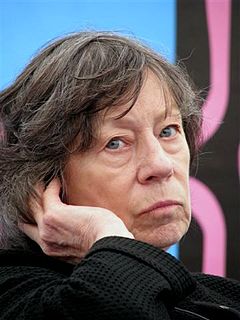A Quote by Marilyn Minter
I'm from the South; there's been such progress since I was young, with racism, with feminism. The environment is next.
Related Quotes
I think that we are in a position to continue to make progress, but it's gonna require us to both recognize what the problems are, also recognize the progress we've made. Last point I'd make on this, since we're on criminal justice: During the course of my presidency crime has been the lowest it's been probably since the '60s.
I am not sure that there has been a "lack of progress." On the contrary, the concept of feminism is not only well established but is now also attracting interest from young women, including teenagers and pre-teens. But a new interest is also symptomatic of the failure of the feminist project and the need for its renewal.
The gay rights movement of recent years has been an inspiring victory for humanity and it is in the tradition of the civil rights movement when I was a young boy in the South, the women's suffrage movement when my mother was a young woman in Tennessee, the abolition movement much farther back, and the anti-apartheid movement when I was in the House of Representatives. All of these movements have one thing in common: the opposition to progress was rooted in an outdated understanding of morality.
I think feminism has always been global. I think there's feminism everywhere throughout the world. I think, though, for Western feminism and for American feminism, it not so surprisingly continues to center Western feminism and American feminism. And I think the biggest hurdle American feminists have in terms of taking a more global approach is that too often when you hear American feminists talk about international feminism or women in other countries, it kind of goes along with this condescending point of view like we have to save the women of such-and-such country; we have to help them.
We should feel an urgency about our environment and what's been done to it by human action and inaction. I wouldn't say there's a resurgence - I think it's been with us all along, and especially since the 1960s and 1970s, but it is true that there's almost a subsection of the bookstore devoted to it now. Personally, I've been addressing these issues in my long and short fiction since the late 1980s - basically since the beginning of my career.





































